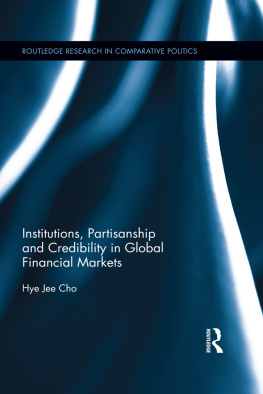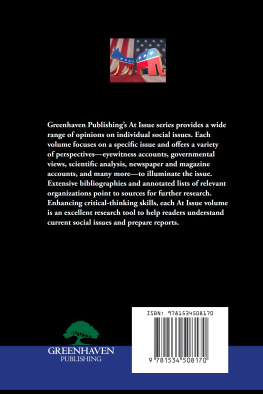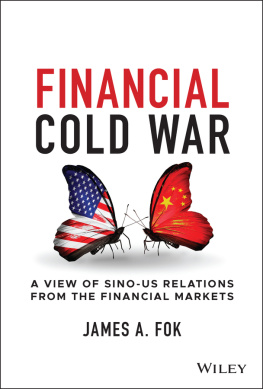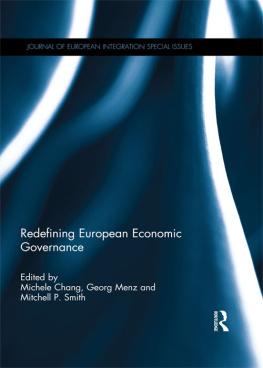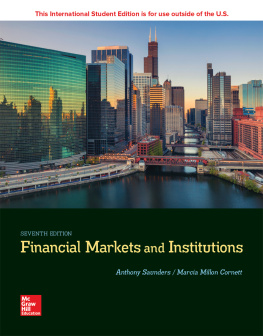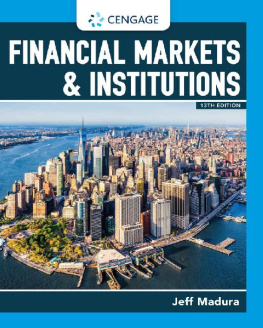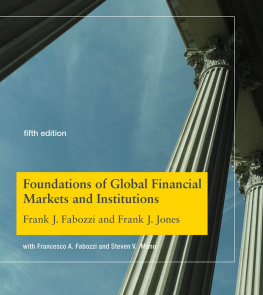Institutions, Partisanship and Credibility in Global Financial Markets
Increasingly integrated global financial markets have been shaken by a series of severe shocks in recent decades, from Mexicos Tequila Crisis to the upheavals in the Eurozone. These crises have demonstrated that signs of uncertain local economic and political conditions can result in market fluctuations, which in turn cause economic, social, and political instability. Such instability is particularly severe for developing countries that rely heavily on international financial markets for their financial needs. Building credibility in these markets is therefore important for national governments who wish to prevent market panic and capital flight and, ultimately, to achieve stable economic growth.
Earlier studies have argued that institutional arrangements that constrain governments and commit them to protecting private property rights and market-friendly policies can send a strong positive signal to the markets about a given countrys sovereign credibility. This book argues, however, that the market perception of such credibility-building institutions is significantly contingent on which party governs the country. Formal institutions confer significant credibility-building effects on left-wing governments, whereas less or no significant effects are enjoyed by right-wing governments. And beyond that, any significant changes in a countrys institutional landscape such as a breakdown of democracy or joining an international organization that can influence domestic politics have a particularly strong impact on the credibility of left-wing governments. This argument is supported by a quantitative analysis of sovereign credit ratings data collected from around 90 developing countries from 1980 to 2007, by case studies from South Asia, Eastern Europe, and Latin America, and by face-to-face interviews with 24 financial market experts based in Hong Kong, Seoul, and Paris.
Hye Jee Cho is Assistant Professor of Political Science at the Hong Kong University of Science and Technology, Hong Kong.
Routledge Research in Comparative Politics
For a full list of titles, please visit: www.routledge.com/Routledge-Research-in-Comparative-Politics/book-series/CP
64 Citizenship and Democracy in an Era of Crisis
Edited by Thomas Poguntke, Sigrid Roteutscher, Rdiger Schmitt-Beck and Sonja Zmerli
65 Drivers of Integration and Regionalism in Europe and Asia Comparative perspectives
Edited by Louis Brennan and Philomena Murray
66 Generations, Political Participation and Social Change in Western Europe
Maria T. Grasso
67 The Politics of Think Tanks in Europe
Jesper Dahl Kelstrup
68 The Statecraft of Consensus Democracies in a Turbulent World A Comparative Study of Austria, Belgium, Luxembourg, the Netherlands and Switzerland
Jos M. Magone
69 Policy Change under New Democratic Capitalism
Edited by Hideko Magara
70 Rampage Shootings and Gun Control Politicization and policy change in Western Europe
Steffen Hurka
70 Growth, Crisis, Democracy The political economy of social coalitions and policy regime change
Edited by Hideko Magara and Bruno Amable
71 Think Tanks in the US and EU The role of policy institutes in Washington and Brussels
Christopher J. Rastrick
72 Institutions, Partisanship and Credibility in Global Financial Markets
Hye Jee Cho
73 Health and Political Engagement
Mikko Mattila, Lauri Rapeli, Hanna Wass and Peter Sderlund
First published 2018
by Routledge
2 Park Square, Milton Park, Abingdon, Oxon OX14 4RN
and by Routledge
711 Third Avenue, New York, NY 10017
Routledge is an imprint of the Taylor & Francis Group, an informa business
2018 Hye Jee Cho
The right of Hye Jee Cho to be identified as author of this work has been asserted by her in accordance with sections 77 and 78 of the Copyright, Designs and Patents Act 1988.
All rights reserved. No part of this book may be reprinted or reproduced or utilised in any form or by any electronic, mechanical, or other means, now known or hereafter invented, including photocopying and recording, or in any information storage or retrieval system, without permission in writing from the publishers.
Trademark notice: Product or corporate names may be trademarks or registered trademarks, and are used only for identification and explanation without intent to infringe.
British Library Cataloguing-in-Publication Data
A catalogue record for this book is available from the British Library
Library of Congress Cataloging-in-Publication Data
A catalog record for this book has been requested
ISBN: 978-1-138-21485-9 (hbk)
ISBN: 978-1-315-44504-5 (ebk)
Typeset in Galliard
by Apex CoVantage, LLC
This book would not have been possible without the support of people who have helped me at various stages of the project. I am grateful to Geoff Garrett and Ron Rogowski, who provided invaluable guidance on my research and training in international political economy at UCLA. Conversations with Geoff inspired me to study the subject and honed my thinking on the project. Ron gave me insightful critiques on my earlier drafts, allowing me to tap into his vast knowledge and experience in the field. Thanks to Geoff and Ron, I was able to pursue the project that I had in mind. I am no less thankful to Michael Ross for introducing me to various literatures that expanded my knowledge in political economy. Thanks as well to Ken Schultz for providing help that was crucial to the refinement of my econometric models and empirical analysis. From Dan Treisman, I learned that only hard work and dedication produce scholarship that meets rigorous professional standards, and I am grateful to him as well.
My sincere appreciation also goes to Jim Vreeland, who has been extremely generous with his advice and help with my research. His warm encouragement and thoughtful advice has helped me to address challenging issues I faced as an academic. My heartfelt gratitude goes to Ping-Sheng Koh as well for his invaluable support and thoughtful suggestions with various aspects of the project. I am also deeply indebted to J. Lawrence Broz for providing me with insightful comments that were critical in building and refining my argument and for his warm encouragement and advice.
My book has also benefited from valuable comments from folks at UCLA and the University of Rochester. I am grateful to Michael Chwe, Barbara Geddes, Jeffrey Lewis, Tom Schwartz, and Mike Thies at the Political Science Department of UCLA. I also thank Tom Dolan, Dan Epstein, Hein Goemans, Daniel Gillion, Mark Kayser, Martin Steinwand, and Randall Stone for their comments on the project during my post-doctoral fellowship at the Political Science Department of U of R.
I am also grateful to Ruben Atoian, Glen Biglaiser, Nancy Brune, Mark Copelovitch, Axel Dreher, Julia Gray, Alexandra Guisinger, Christopher Humphrey, Nathan Jensen, Dong-Hun Kim, Ed Malesky, Layna Mosley, Irfan Nooruddin, Chad Rector, and Stephanie Rickard for their helpful comments, encouragement, and making data available. Thanks as well to colleagues at the Hong Kong University of Science and Technology (HKUST) for their support in the later stage of this project. I received particularly helpful comments from Yongshun Cai, Josh Derman, Wenkai He, Han Li, Kellee Tsai, and David Zweig. Earlier versions of the chapters have been presented at various conferences held by the American Political Science Association, International Studies Association, Midwest Political Science Association, Political Economy of International Organization, Western Political Science Association, Taiwan Insurance Guarantee Fund, and HKUST-Seoul National University, and talks at the University of Rochester, University of Vermont, HKUST, Korea University, and Ajou University in Korea, and I thank the participants for their comments. Simon Bates at Routledge has provided very thoughtful suggestions on my proposal, and I thank him for his feedback and patience. I would like to acknowledge the financial support by the UC Institute on Global Conflict and Cooperation, UCLAs Graduate Division, and HKUST.

